Indian Rummy: The Complete Encyclopedia
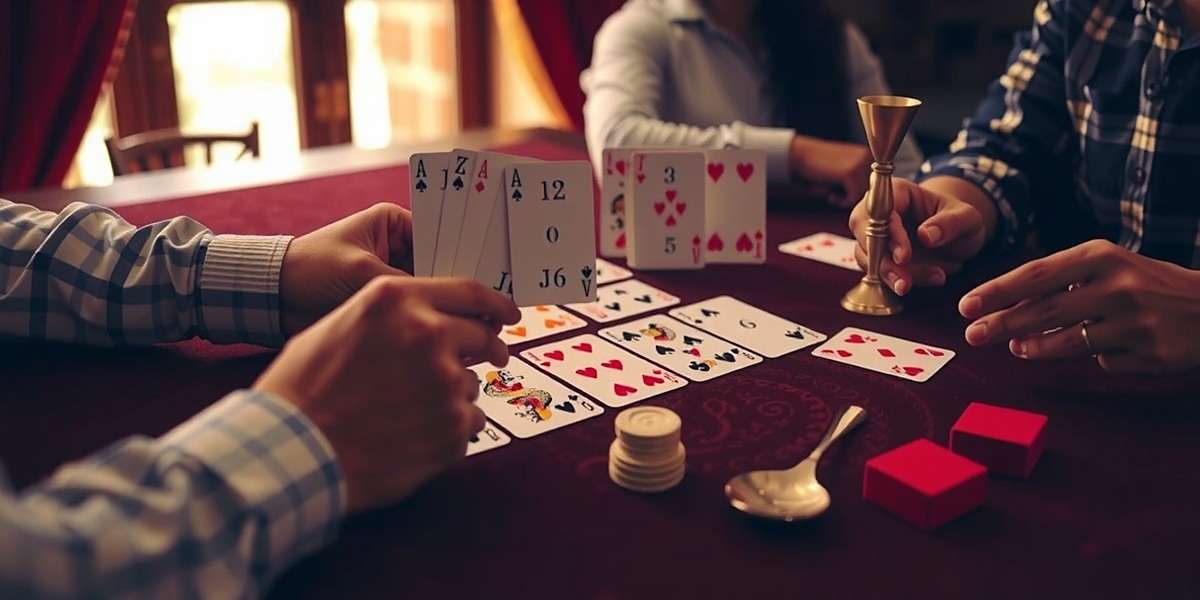
Indian Rummy, also known as Paplu, is a popular card game played across India with great enthusiasm. It's a game that combines skill, strategy, and a bit of luck, making it a favorite pastime at family gatherings, festivals, and social events throughout the country.
Unlike many Western card games, Indian Rummy has deep roots in Indian culture and has been adapted over generations to suit local preferences. Today, it's not just a physical card game but has also gained massive popularity in its digital form, with millions of Indians playing online every day.
This comprehensive guide will take you through everything you need to know about Indian Rummy – from its history and rules to strategies, variants, and how to play online. Whether you're a complete beginner or an experienced player looking to improve your skills, this encyclopedia has something for everyone!
📱 Download Indian Rummy App 🔑 Login to Play NowIntroduction to Indian Rummy
Indian Rummy is a member of the rummy family of card games, but with distinct rules that set it apart from other variants like Gin Rummy or Oklahoma Rummy. The game is played with 2 or more decks of standard playing cards, depending on the number of players.
The objective of Indian Rummy is to arrange all the cards in your hand into valid sequences and sets. A sequence is a group of three or more consecutive cards of the same suit, while a set is three or four cards of the same rank but different suits.
What makes Indian Rummy unique is the requirement that every player must have at least two sequences to declare a win – one of which must be a pure sequence (without any jokers). This adds an extra layer of strategy to the game.
Indian Rummy by the Numbers 📊
Indian Rummy is more than just a game in India – it's a social phenomenon. You'll find people playing it in homes, clubs, and even on street corners throughout the country. During festivals like Diwali, Holi, and Dussehra, Rummy tournaments are a common sight in many neighborhoods.
The game's popularity can be attributed to its perfect balance of skill and luck, making it accessible to players of all ages and backgrounds. It's easy to learn the basics but takes years to master completely, which is why it has maintained its appeal across generations.
With the rise of smartphones and affordable internet in India, online Indian Rummy has seen explosive growth in recent years. Platforms offering Indian Rummy have made the game more accessible than ever, allowing people to play anytime, anywhere, against opponents from across the country.
Fun Fact: Indian Rummy is so popular that it's often referred to as the "national card game of India." During the Diwali season, online Rummy platforms see a 300% increase in active players, with many families organizing virtual tournaments!
History of Indian Rummy
The exact origins of Indian Rummy are somewhat unclear, but the game is believed to have evolved from traditional Indian card games that date back centuries. Some historians trace its roots to the Mughal era, where card games were popular among royalty.
The modern version of Indian Rummy is thought to have developed in the early 20th century, combining elements of traditional Indian games with Western rummy variants introduced by British colonizers. Over time, it adapted to local preferences, resulting in the unique rules we know today.
In the pre-digital era, Indian Rummy was primarily played with physical cards, often handmade in rural areas. It was a staple at family gatherings, especially during festivals, and was seen as a way to bring people together and strengthen social bonds.
The first digital versions of Indian Rummy appeared in the early 2000s, but it wasn't until the widespread adoption of smartphones in the 2010s that online Indian Rummy truly took off. Today, there are dozens of platforms offering the game, with millions of active players.

Why Indian Rummy is So Popular in India
There are several reasons why Indian Rummy has achieved such widespread popularity across India:
1. Cultural Fit: The game aligns perfectly with Indian social customs, where gathering with family and friends for games is a cherished tradition. Rummy fits naturally into this context.
2. Accessibility: Indian Rummy can be played with a standard deck of cards, making it accessible to people across all economic strata. You don't need expensive equipment to enjoy the game.
3. Skill Development: Unlike purely luck-based games, Indian Rummy rewards skill, strategy, and careful thinking. This appeals to Indians' appreciation for games that require mental agility.
4. Social Bonding: Rummy games often involve friendly banter and conversation, making them an excellent way to socialize. This aspect is particularly valued in India's community-oriented culture.
5. Adaptability: The game can be played in various settings – from casual family games with relaxed rules to competitive tournaments with strict regulations.
6. Digital Transition: Indian Rummy has successfully made the transition to digital platforms, capitalizing on India's growing internet user base and smartphone penetration.
Rules of Indian Rummy
Understanding the rules of Indian Rummy is essential for anyone looking to play the game. While there may be slight variations in how it's played in different regions of India, the core rules remain consistent.
Basic Rules and Gameplay
Number of Players: Indian Rummy can be played with 2 to 6 players. For 2-3 players, one deck of 52 cards plus 2 jokers is used. For 4-6 players, two decks (104 cards) plus 4 jokers are used.
Card Distribution: - For 2 players: 13 cards each - For 3 to 6 players: 13 cards each
The remaining cards are placed face down on the table to form the stock pile. The top card of the stock pile is turned face up to start the discard pile.
Objective: To arrange all 13 cards in your hand into valid sequences and sets, with at least one pure sequence (a sequence without any jokers).
Gameplay: Players take turns in clockwise order. On your turn, you must:
1. Draw one card – either from the top of the stock pile or the top of the discard pile
2. Discard one card from your hand onto the discard pile
The game continues until one player can arrange all their cards into valid sequences and sets. That player declares their hand and wins the round.
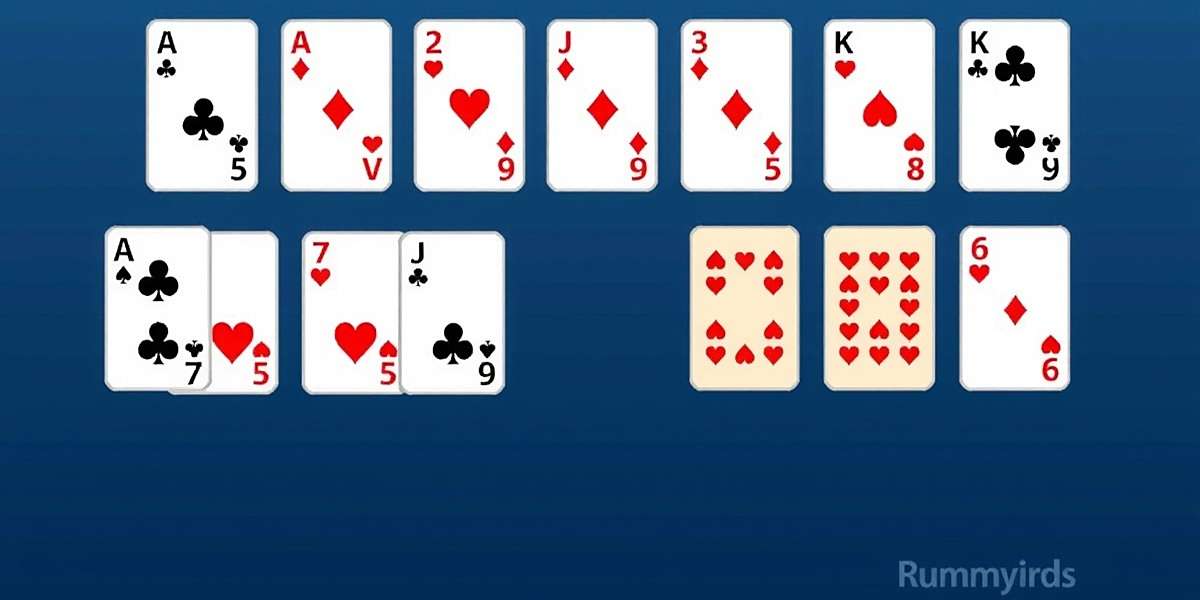
Understanding Sequences and Sets
In Indian Rummy, the key to winning is forming valid sequences and sets:
Pure Sequence: A group of three or more consecutive cards of the same suit, without any jokers. This is mandatory to declare a win. Examples:
- 5♥, 6♥, 7♥ (hearts)
- 10♠, J♠, Q♠, K♠ (spades)
- A♦, 2♦, 3♦ (diamonds)
Impure Sequence: A group of three or more consecutive cards of the same suit that includes one or more jokers. Examples:
- 5♥, Joker, 7♥
- 10♠, J♠, Joker, K♠
Set: A group of three or four cards of the same rank but different suits. Examples:
- 7♥, 7♠, 7♦
- K♥, K♠, K♦, K♣
Sets cannot have more than four cards. Also, you cannot use more than one joker in a set.
Jokers in Indian Rummy
Jokers play a crucial role in Indian Rummy and can be used to replace any card to form sequences or sets.
Printed Joker: These are the standard jokers found in every deck of cards. They can be used as any card needed.
Wild Joker: At the start of each game, a random card is selected as the wild joker (also known as the "joker of the game"). All cards of that rank (regardless of suit) become jokers for that game. For example, if the 8♦ is selected, then 8♥, 8♠, 8♦, and 8♣ are all wild jokers.
Jokers cannot be used to form a pure sequence, but they are essential for creating impure sequences and completing sets.
Important Rules to Remember
- You must have at least two sequences to declare, one of which must be pure
- A pure sequence cannot contain any jokers
- You can use jokers to complete impure sequences and sets
- All cards must be arranged in valid sequences or sets to declare
- You cannot have more than 13 cards in your hand at any time
- If you pick a card from the discard pile, you cannot discard the same card in the same turn
Scoring in Indian Rummy
Scoring in Indian Rummy is based on the value of the cards that are not part of valid sequences or sets when a player declares:
Card Values: - Number cards (2-10): Face value - Jack, Queen, King: 10 points each - Ace: 10 points - Jokers: 0 points
Scoring Rules: - When a player declares successfully, they get 0 points - All other players get points equal to the sum of the values of their unmatched cards - If a player has not formed the mandatory pure sequence, all their cards count towards their score (even if some are in valid combinations) - In some variants, the first player to reach a predetermined score (like 101 or 201) loses the game
Understanding scoring is essential for developing strategies, as minimizing your points if another player declares is almost as important as declaring yourself.
Declaring and Winning
To declare in Indian Rummy, a player must have arranged all 13 cards into valid sequences and sets, including at least one pure sequence.
The declaration process varies slightly across India but generally involves:
1. The player places their cards face up on the table
2. They arrange the cards into their respective sequences and sets to show they are valid
3. Other players can inspect the cards to ensure all combinations are valid
4. If valid, the declaring player wins the round and scores 0 points
5. Other players calculate their scores based on unmatched cards
In some regional variations, players must say "Rummy" when declaring, similar to how it's done in Western rummy variants.
Variants of Indian Rummy
One of the reasons for Indian Rummy's enduring popularity is its adaptability, leading to several regional and situational variants across India. While the core mechanics remain similar, each variant has unique rules that add variety to the game.
Points Rummy
Points Rummy is the most popular variant of Indian Rummy, especially in online platforms. It's a fast-paced version where each game is completed in a single round.
Key Features: - Each player starts with a certain number of points (usually 100 or 200) - Players bet points on each round - The winner takes all the points bet in that round - Games are quick, usually lasting 5-10 minutes - No carryover from one game to the next
Points Rummy is particularly popular in North India and among online players who prefer short, intense games that can be completed in a break between daily activities.
Pool Rummy
Pool Rummy is another widely played variant, especially in tournaments. It involves multiple rounds played until one or more players are eliminated.
Key Features: - Players contribute a fixed entry fee to a prize pool - Games are played until players reach a predetermined score (usually 101 or 201) - Players who reach the target score are eliminated - The last remaining player wins the entire pool - Popular formats include 101 Pool and 201 Pool
Pool Rummy is popular in South India and is the preferred format for organized tournaments due to its structured nature and clear progression.
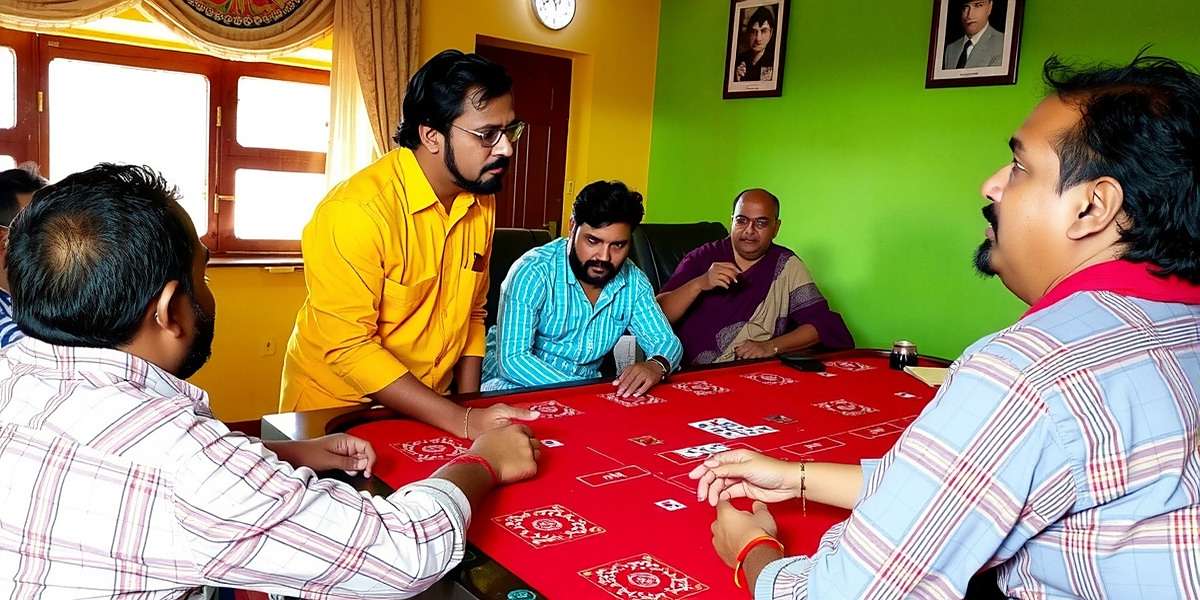
Deals Rummy
Deals Rummy is a variant where a fixed number of deals (usually 6 or 10) are played, with each deal being a separate round.
Key Features: - Players pay a fixed amount to participate - Each deal is played with a new shuffle and deal - Points are accumulated over all deals - The player with the least total points after all deals wins - Popular in Maharashtra and Gujarat
Deals Rummy offers a good balance between short-term rounds and long-term strategy, as players must manage their performance across multiple deals.
Regional Variations
India's diverse cultural landscape has given rise to several regional variations of Rummy, each with unique rules and names:
Paplu (North India): A popular variant in Uttar Pradesh, Delhi, and Punjab. It uses a single deck and has slightly relaxed rules for sequences.
13 Cards Rummy (South India): The standard variant in Tamil Nadu, Karnataka, and Andhra Pradesh. It's known for strict enforcement of sequence rules.
21 Cards Rummy (West India): Played in Maharashtra and Goa with 21 cards per player, requiring more sequences and sets to declare.
Kalooki (East India): Popular in West Bengal and Bangladesh. It uses three decks and allows more flexibility in forming combinations.
Rum Patti (Rajasthan): A variant with unique scoring rules where certain cards have higher values than in standard Indian Rummy.
These regional variations often reflect local cultural preferences, with some emphasizing speed while others focus more on strategic depth.
Online-Exclusive Variants
With the growth of online gaming platforms, several new variants of Indian Rummy have emerged that are designed specifically for digital play:
Speed Rummy: A fast-paced variant with a timer for each turn, encouraging quick decision-making.
Tournament Rummy: Structured competitions with multiple rounds and increasing stakes.
Team Rummy: Players form teams of 2-3 members, working together to win against other teams.
Bonus Rummy: Special events with bonus points for specific card combinations or achievements.
These online variants have helped introduce Indian Rummy to a new generation of players, adapting the traditional game to fit modern digital lifestyles.
How to Play Indian Rummy: Step-by-Step Guide
Playing Indian Rummy is easy once you understand the basic rules and objectives. Follow this step-by-step guide to get started:
Step 1: Prepare the Game
1. Gather 2-6 players. For 2-3 players, use one deck of 52 cards plus 2 jokers. For 4-6 players, use two decks plus 4 jokers.
2. Shuffle the cards thoroughly and place them face down on the table to form the stock pile.
3. Draw a card randomly to determine the wild joker. This card is placed face up next to the stock pile, with the rest of the deck reshuffled.
4. Deal 13 cards to each player. In some regional variants, players take turns drawing cards instead of being dealt all at once.
5. Place the top card of the stock pile face up next to it to start the discard pile.
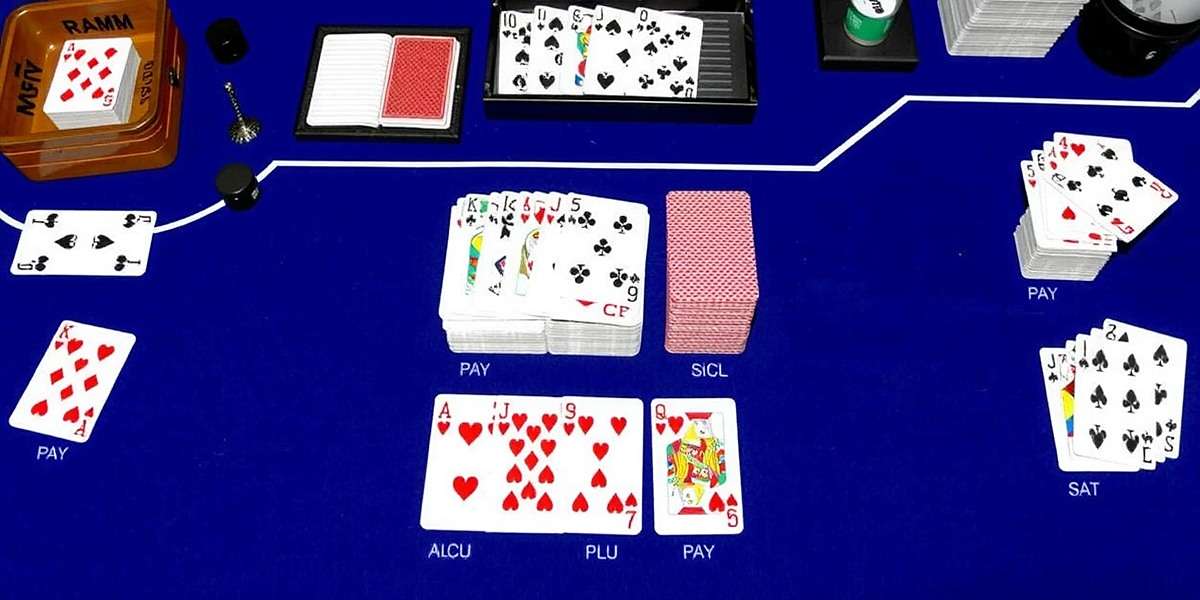
Step 2: Understand Your Cards
Take a moment to look at your 13 cards and start planning your strategy:
1. Identify any potential sequences (consecutive cards of the same suit)
2. Look for possible sets (cards of the same rank but different suits)
3. Note the jokers (both printed and wild) that can help complete your combinations
4. Prioritize forming a pure sequence first, as it's mandatory for declaring
Step 3: Start Playing
Play proceeds clockwise, starting with the player to the dealer's left:
1. On your turn, draw one card – either from the top of the stock pile (unknown card) or the top of the discard pile (known card)
2. Add this card to your hand and decide which card to discard
3. Discard one card from your hand by placing it face up on the discard pile
4. The next player takes their turn
Remember that if you pick a card from the discard pile, you cannot discard the same card in the same turn – you must discard a different card from your hand.
Step 4: Form Valid Combinations
As the game progresses, continue to build your sequences and sets:
1. Focus first on completing at least one pure sequence (without jokers)
2. Then work on a second sequence (which can be impure, using jokers)
3. Use remaining cards to form additional sequences or sets
4. Keep an eye on the cards other players are picking and discarding to guess their strategies
5. Try to minimize the points in your hand in case another player declares before you
Beginner's Tips for Forming Combinations
- Start with the longest possible sequence you can form with your initial cards
- Use jokers to fill gaps in potential sequences rather than in sets when possible
- Keep high-value cards (Aces, Kings, Queens, Jacks) only if they fit into combinations
- Don't hold onto too many cards of the same rank unless forming a set
- Pay attention to which cards other players are discarding – they're unlikely to need them
Step 5: Declare and Win
Once you've arranged all 13 cards into valid combinations (with at least one pure sequence):
1. Place your cards face up on the table
2. Arrange them into their respective sequences and sets to demonstrate they're valid
3. In many regions, you must say "Rummy" when declaring
4. Other players will check your combinations for validity
5. If valid, you win the round! Calculate points for other players based on their unmatched cards
6. For multi-round games, reshuffle and deal again to start a new round
Remember that if your declaration is invalid (e.g., no pure sequence, invalid combinations), you'll usually get all the points from your cards as a penalty.
Indian Rummy Strategies and Tips
While luck plays a role in Indian Rummy, skill and strategy are what separate consistent winners from casual players. Here are some proven strategies to improve your game:
Basic Strategies for Beginners
Prioritize Pure Sequences: The most important rule in Indian Rummy is that you must have at least one pure sequence to declare. Focus on forming this first before working on other combinations.
Discard High-Value Cards Early: Cards like Aces, Kings, Queens, and Jacks carry 10 points each. If they're not part of potential sequences or sets, discard them early to minimize your points if another player declares.
Track Discarded Cards: Pay attention to which cards other players are discarding and picking up. This can give you valuable information about what combinations they're trying to form.
Use Jokers Wisely: Jokers are powerful tools but use them strategically. Save them for completing difficult combinations rather than using them for easy ones that can be formed without them.
Keep a Balanced Hand: Try to maintain a balance between working on sequences and sets. Having too many cards that can only form sets (and not sequences) can be risky.
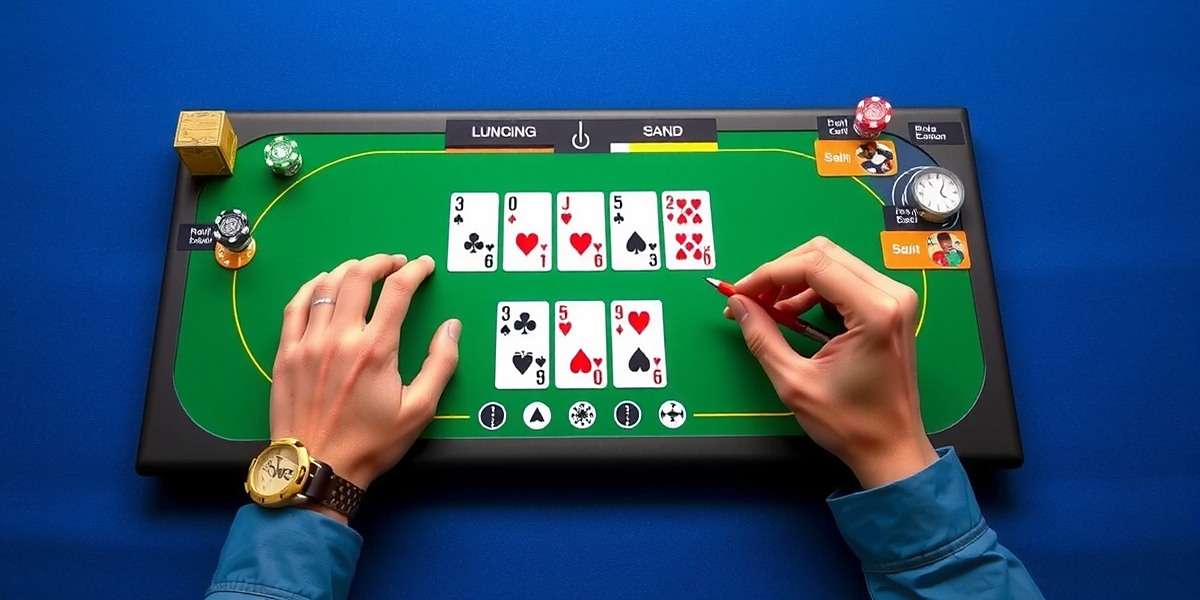
Advanced Tactics for Experienced Players
Bluffing: Sometimes discarding a card you actually need can trick opponents into thinking you're not working on that sequence, causing them to discard the card you need next.
Card Counting: Keep track of which cards have been played to know the probability of drawing the card you need. This is especially effective in games with fewer players.
Strategic Discarding: When discarding, try to avoid throwing cards that could help your opponents. If multiple players are chasing the same suit, discard from that suit carefully.
Flexible Combinations: Keep your options open by maintaining cards that can fit into multiple potential sequences or sets. This flexibility can be crucial as the game progresses.
Know When to Fold: If your hand is weak and another player is showing signs of being close to declaring, consider folding (dropping out of the round) to minimize your losses.
Regional Strategies from Indian Masters
Different regions of India have developed unique strategic approaches to Indian Rummy:
North Indian Style: Players from Punjab and Uttar Pradesh often favor aggressive play, focusing on forming sequences quickly and putting pressure on opponents.
South Indian Style: Players from Tamil Nadu and Karnataka typically adopt a more patient approach, carefully building multiple potential sequences before committing to a declaration.
West Indian Style: Maharashtrian players are known for their calculated risk-taking, often using bluffing tactics to confuse opponents.
East Indian Style: Players from Bengal and Odisha often focus on set formation, using jokers strategically to complete combinations late in the game.
Observing and learning from players across different regions can help you develop a well-rounded approach to the game.
Tournament Strategies
Tournament play requires a different approach than casual games, as the stakes are higher and competition is tougher:
Adapt to Opponents: In tournaments, you'll face the same opponents multiple times. Adapt your strategy based on their playing styles.
Manage Your Score: In Pool Rummy tournaments, focus on keeping your score low rather than always trying to win every round.
Conserve Energy: Tournaments can be long. Stay focused and avoid mental fatigue by taking short breaks when possible.
Final Rounds Aggression: In the later stages of tournaments, become more aggressive as the number of players decreases and the stakes increase.
Study Previous Games: Take note of patterns in your opponents' play during earlier rounds to anticipate their moves in later stages.
Pro Tip: The best Indian Rummy players don't just focus on their own hands – they constantly analyze what their opponents might be holding based on their discards and draws. This level of observation can give you a significant advantage, especially in competitive games.
Online Indian Rummy
The rise of digital technology has transformed Indian Rummy, making it accessible to anyone with a smartphone or computer. Online Indian Rummy platforms have introduced millions of new players to the game while providing convenience for traditional enthusiasts.
Benefits of Playing Indian Rummy Online
Convenience: Play anytime, anywhere – whether you're at home, commuting, or taking a break at work. Online platforms are available 24/7.
Variety of Opponents: Play against players from across India, testing your skills against different regional styles and strategies.
Multiple Variants: Online platforms offer various Rummy variants in one place, allowing you to switch between them easily.
Tournaments: Regular tournaments with cash prizes and rankings give players something to strive for beyond casual games.
Bonuses and Rewards: Online platforms offer welcome bonuses, referral rewards, and loyalty programs that add extra value.
Skill Development: Many platforms offer practice modes and tutorials to help new players learn the game and improve their skills.
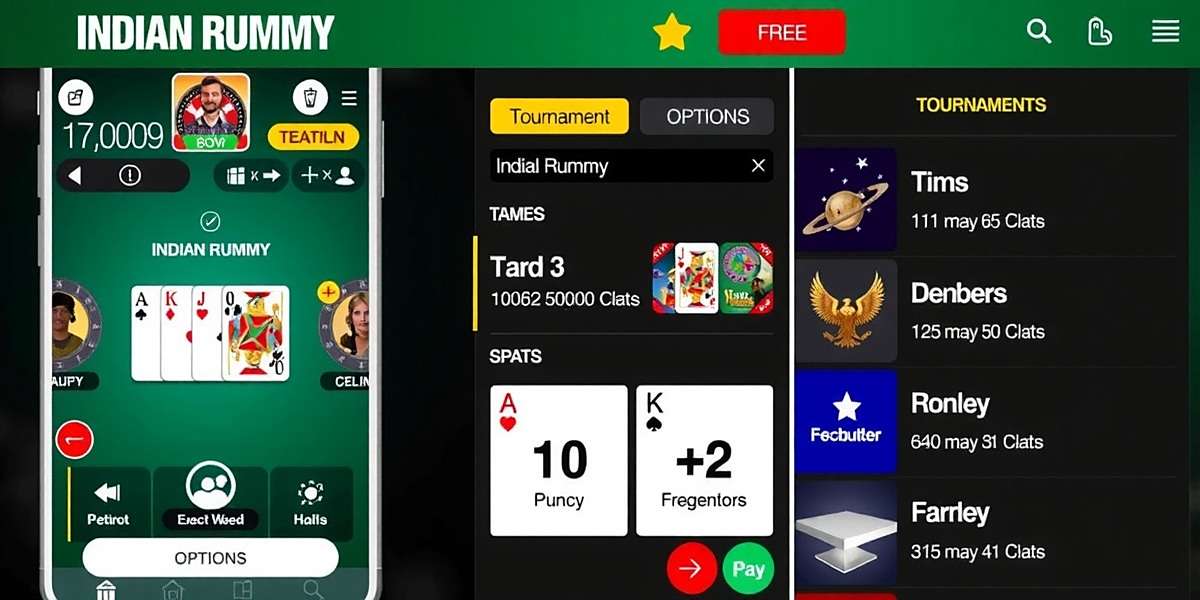
Popular Online Platforms for Indian Rummy
Several platforms have established themselves as leaders in the online Indian Rummy space:
RummyCircle: One of the largest platforms with millions of active players. Known for its user-friendly interface and regular tournaments.
Classic Rummy: Popular for its wide range of variants and focus on fair play. Offers extensive tutorials for new players.
Adda52 Rummy: Part of the popular Adda52 gaming network, known for its secure transactions and competitive tournaments.
Junglee Rummy: Offers a unique social gaming experience with features that allow players to connect with friends and form communities.
Rummy Passion: Known for its high-quality graphics and smooth gameplay, particularly popular among younger players.
All these platforms offer the core Indian Rummy experience while adding their own unique features and interfaces.
How to Get Started with Online Indian Rummy
Getting started with online Indian Rummy is simple and straightforward:
1. Choose a Platform: Research different online Rummy platforms to find one that suits your preferences for interface, variants, and community.
2. Download the App or Visit the Website: Most platforms offer both mobile apps (for Android and iOS) and web versions.
📥 Download Indian Rummy App3. Create an Account: Register using your mobile number, email, or social media account. Most platforms require phone verification for security.
4. Explore the Interface: Take some time to familiarize yourself with the platform's features, including game types, tournaments, and settings.
5. Practice: Many platforms offer free practice games to help you get comfortable with online play before risking real money.
6. Add Funds (Optional): If you want to play for real money, add funds to your account using the available payment methods.
7. Start Playing: Join a game or tournament that matches your skill level and preferred variant.
🔑 Login to Your AccountOnline Rummy Tournaments
Online tournaments have become a major attraction for Indian Rummy players, offering the chance to compete for significant prizes:
Daily Tournaments: Smaller tournaments with lower entry fees, held daily. These are perfect for regular play and practice.
Weekend Specials: Larger tournaments with bigger prize pools, often attracting thousands of players.
Festival Tournaments: Special events during Diwali, Holi, and other Indian festivals with massive prize pools – sometimes in the lakhs of rupees.
Leaderboard Competitions: Ongoing competitions where players earn points over time, with top performers winning prizes at the end of each month.
Sit & Go Tournaments: Smaller tournaments that start as soon as enough players have registered, offering quick gameplay.
Online tournaments typically follow Pool Rummy rules, with players eliminated as they reach the target score.
Payment Methods and Security
Reputable online Rummy platforms in India offer a variety of secure payment methods:
Digital Wallets: Paytm, PhonePe, Google Pay, and other popular Indian digital wallets are widely accepted.
UPI: Unified Payments Interface has become a preferred method due to its convenience and wide acceptance.
Credit/Debit Cards: All major cards (Visa, Mastercard, Rupay) are accepted on most platforms.
Net Banking: Direct bank transfers from most Indian banks are supported.
Leading platforms use advanced encryption technology to protect financial transactions and personal information. They also implement responsible gaming measures, including deposit limits and self-exclusion options.
Important Note: Online gaming regulations vary across Indian states. Before playing for real money, ensure that online Rummy is legal in your state. Most platforms restrict real-money games in states where they are prohibited by law.
Download Indian Rummy Apps
Mobile apps have made Indian Rummy more accessible than ever, allowing players to enjoy the game on their smartphones wherever they go. Here's everything you need to know about downloading and installing Indian Rummy apps in India.
Download Options for Indian Users
Google Play Store: Most Indian Rummy apps are available on the Google Play Store, making them easy to download for Android users. Simply search for "Indian Rummy" or the specific platform name.
Apple App Store: iOS users can find Rummy apps on the App Store, though availability may be more limited due to Apple's stricter guidelines for real-money gaming apps.
Official Websites: For apps not available on official stores, you can download the APK directly from the platform's official website. Always ensure you're downloading from a trusted source.
Third-Party App Stores: Popular Indian app stores like Mi GetApps, Samsung Galaxy Store, and Oppo App Market also offer Indian Rummy apps for their respective devices.
Download Indian Rummy App Now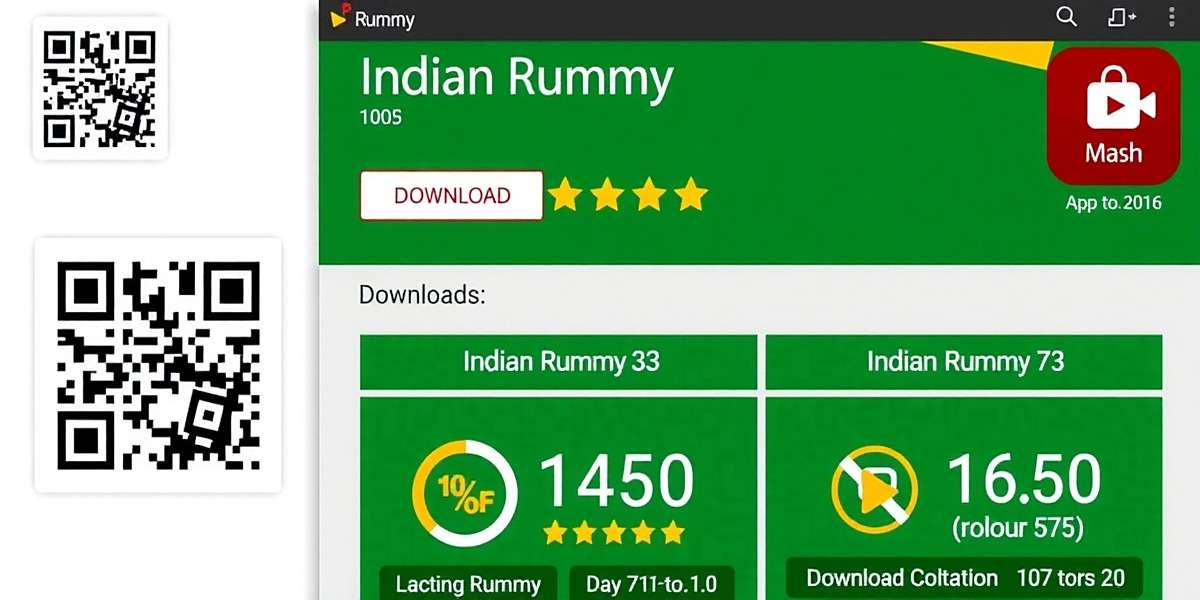
System Requirements
Indian Rummy apps are designed to work on most modern smartphones used in India:
Android Requirements: - Operating System: Android 5.0 (Lollipop) or higher - RAM: 2GB or higher (1GB may work but with reduced performance) - Storage: 50MB of free space for basic apps, up to 150MB for feature-rich platforms - Internet: 2G or better (3G/4G recommended for smooth gameplay)
iOS Requirements: - iOS 10.0 or later - Compatible with iPhone 6 and later models, iPad, and iPod touch - 100MB of free storage space
The apps work well on popular Indian smartphone brands like Xiaomi, Samsung, Realme, Oppo, Vivo, and Motorola, which together account for over 90% of the Indian market.
Download and Installation Guide
Follow these steps to download and install an Indian Rummy app on your device:
1. Choose Your Platform: Research different Indian Rummy apps to find one that suits your preferences.
2. For Play Store/App Store: - Open the respective app store on your device - Search for the app by name - Tap "Install" or "Get" - Wait for the download and installation to complete
3. For APK Download: - Visit the official website of the Rummy platform - Look for the "Download App" or "Get APK" button - If prompted, enable "Install from Unknown Sources" in your device settings - Open the downloaded APK file and follow the installation instructions
4. First Launch: - Open the app after installation - Allow any necessary permissions (usually storage, location, and notifications) - Create a new account or log in if you already have one - Complete any initial setup or tutorial - Start playing!
Most apps offer a small welcome bonus for new users, which can be used to play initial games without depositing your own money.
Download Statistics in India
Indian Rummy apps have seen phenomenal growth in recent years:
- Total downloads of Indian Rummy apps have exceeded 40 million across all platforms
- The average Indian Rummy app has a 4.5+ rating on the Play Store from hundreds of thousands of reviews
- Daily active users (DAU) across all platforms exceed 5 million during peak periods
- Downloads spike by 200-300% during major Indian festivals, particularly Diwali
- Maharashtra, Uttar Pradesh, and Tamil Nadu account for over 50% of all downloads
- Tier 2 and Tier 3 cities now contribute more than 60% of new downloads, reflecting the game's growing popularity beyond major metropolitan areas
The growth of affordable smartphones and improved internet connectivity across India has been the primary driver behind this surge in downloads.
Indian Rummy Localization and Regional Adaptations
One of the reasons for Indian Rummy's widespread appeal is its ability to adapt to regional preferences across India's diverse cultural landscape. From language support to region-specific features, Indian Rummy platforms have embraced localization to better serve players across the country.
Language Support
Leading Indian Rummy platforms offer support for multiple regional languages, making the game accessible to non-English speakers:
Major Languages: Hindi, Bengali, Tamil, Telugu, Marathi, Gujarati, Kannada, Malayalam, Punjabi, and Urdu.
This language support extends beyond just the user interface to include:
- In-game instructions and tutorials - Customer support services - Promotional materials and event descriptions - Community forums and chat functions
Hindi support is particularly important, as it's understood by a majority of Indians across different regions. However, the availability of regional languages has been crucial for penetrating markets in South and East India.
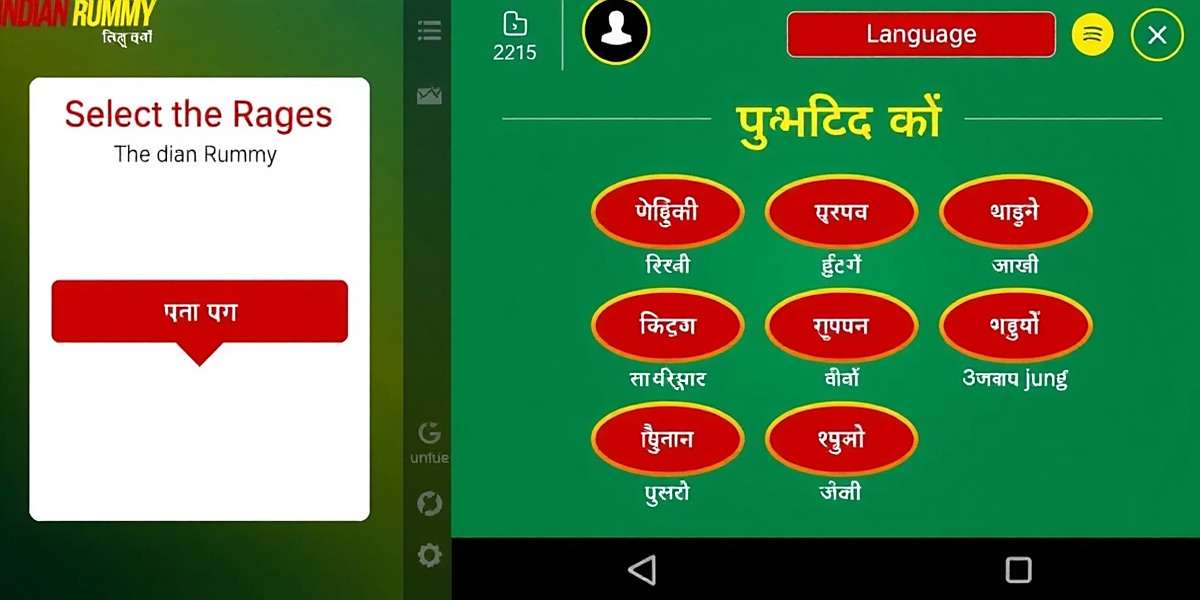
Regional Variants in Online Platforms
Online Indian Rummy platforms have incorporated regional variants to cater to local preferences:
North India: Special emphasis on Points Rummy and Paplu variants, with features like Hindi voice commentary and region-specific tournaments.
South India: Focus on 13 Cards Rummy with strict rules, and special events timed around regional festivals like Pongal and Onam.
West India: Popularity of Deals Rummy, with interfaces optimized for Gujarati and Marathi speakers.
East India: Support for Kalooki and other local variants, with tournaments scheduled to accommodate regional time preferences.
Some platforms even offer region-specific leaderboards, allowing players to compete against others from their state or region.
Festival-Themed Events
Indian Rummy platforms celebrate major Indian festivals with special events and features:
Diwali Specials: The biggest festival for Indian Rummy, with: - Special Diwali tournaments with large prize pools - Festive card designs and interface themes - Daily bonuses and rewards throughout the festival period - "Lakshmi Pooja" themed games with lucky draws
Holi Celebrations: Colorful events featuring: - Limited-time game modes with Holi themes - Special avatar customization options - "Color War" tournaments between regional teams
Dussehra Events: Including: - Ravan Dahan inspired tournaments where players work together - Special Ramayana-themed card decks - 10-day challenge events corresponding to the festival duration
Regional Festival Support: Platforms also recognize important regional festivals like Pongal (South), Bihu (Northeast), and Ganesh Chaturthi (Maharashtra) with appropriate events.
Cultural References and Themes
Indian Rummy platforms incorporate local cultural elements to make the game more relatable:
Card Designs: Many platforms feature card backs with Indian motifs, including rangoli patterns, temple designs, and regional art forms.
Avatars and Profiles: Customization options include traditional Indian clothing, regional headwear, and cultural symbols.
Sound Effects: Background music and sound effects often incorporate Indian musical instruments and traditional tunes.
terminology: Using familiar regional terms for game actions, such as "Dhoka" for bluffing in some North Indian platforms.
These cultural touches help make online Indian Rummy feel less like a foreign import and more like a natural extension of traditional Indian gaming culture.
Cultural Insight: In many parts of India, playing Rummy during Diwali is considered auspicious, as it's believed to bring good luck and prosperity for the coming year. Online platforms have successfully tapped into this tradition, creating digital versions of a beloved cultural practice.
Indian Rummy Community and Culture
Indian Rummy is more than just a game – it's a social phenomenon that brings people together across India. The Rummy community is vibrant and active, both online and offline, with players forming connections that extend beyond the game itself.
Offline Rummy Culture in India
In physical form, Indian Rummy is deeply ingrained in Indian social life:
Family Gatherings: Rummy is a staple at family get-togethers, especially during festivals and holidays. Multiple generations often play together, with elders teaching younger family members the nuances of the game.
Club Tournaments: Many social clubs and community centers across India organize regular Rummy tournaments, particularly in urban areas. These events often serve as important social occasions.
Neighborhood Games: In many residential areas, neighbors gather regularly for Rummy sessions, strengthening community bonds.
Office Tournaments: Workplace Rummy competitions are common in India, providing a fun way for colleagues to interact outside of formal work settings.
Traditional offline Rummy is often played with relaxed rules compared to competitive versions, emphasizing social interaction over strict competition.
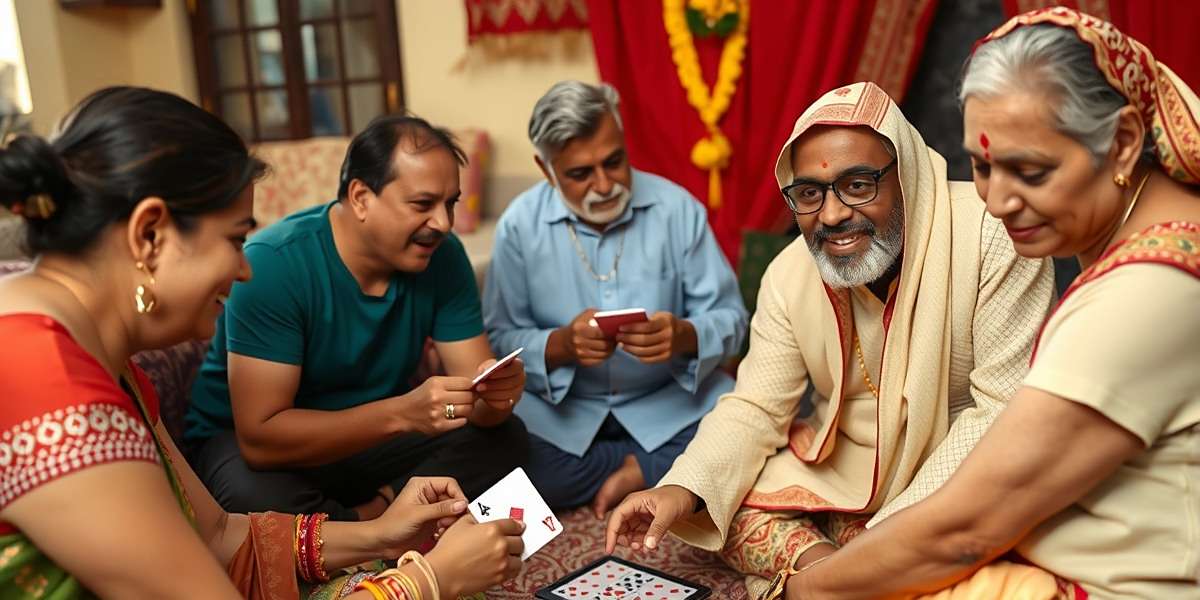
Online Communities and Forums
The growth of online Rummy has led to the development of active digital communities:
Platform Communities: Most online Rummy platforms have built-in community features, including chat functions, player profiles, and friend systems.
Social Media Groups: Facebook, WhatsApp, and Telegram groups dedicated to Indian Rummy have thousands of members sharing tips, organizing games, and discussing strategies.
Forums and Blogs: Specialized websites and blogs provide in-depth strategy guides, tournament updates, and platform reviews.
YouTube Channels: Many content creators produce Indian Rummy tutorials, gameplay videos, and strategy discussions, with some channels boasting hundreds of thousands of subscribers.
Discord Servers: Organized by skill level, region, or preferred variant, these servers facilitate real-time discussion and game organization.
Major Rummy Tournaments in India
Organized Rummy tournaments have grown in popularity, with some attracting nationwide attention:
Indian Rummy Championship: The largest offline tournament, held annually in different cities. The 2023 championship in Mumbai had over 5,000 participants.
Online National Cup: Hosted by leading platforms, this online tournament attracts hundreds of thousands of players competing for prize pools exceeding ₹1 crore.
Regional Master Series: A circuit of tournaments held in major cities across India, culminating in a national final.
Festival Grand Tournaments: Special events during Diwali and other major festivals, often with the largest prize pools of the year.
These tournaments have helped elevate Indian Rummy's status from a casual pastime to a recognized competitive activity, with some top players earning significant prize money and sponsorships.
Professional Players and Celebrities
As Indian Rummy has grown in popularity, some players have achieved recognition as professionals:
Professional Players: A small but growing number of players make a living from Rummy tournaments and streaming their gameplay online.
Celebrity Endorsements: Several Indian film and sports personalities have endorsed Rummy platforms, including Amitabh Bachchan, MS Dhoni, and Ajay Devgn.
Streamers and Content Creators: Popular Rummy streamers on YouTube and gaming platforms have built large followings, entertaining audiences with their gameplay and commentary.
Brand Ambassadors: Top players are often signed as brand ambassadors for Rummy platforms, representing them in marketing campaigns and events.
Joining the Indian Rummy Community
- Start with local community groups or online forums to connect with other players
- Participate in small tournaments to meet fellow enthusiasts
- Follow popular Rummy streamers and content creators to learn new strategies
- Join regional Facebook or WhatsApp groups for more localized connections
- Attend Rummy events during festivals, which are often open to new players
Player Reviews and Reception
Indian Rummy has received overwhelmingly positive feedback from players across India, with both traditional and online versions enjoying strong popularity. Here's a summary of player opinions and reviews:
Common Praise from Players
Social Connectivity: Players consistently praise Rummy's ability to bring people together. Many reviews mention how the game has helped strengthen family bonds and build new friendships.
Mental Stimulation: Players appreciate that Rummy offers more than just entertainment – it exercises the mind, improving skills like concentration, memory, and strategic thinking.
Accessibility: The game's simple rules but deep strategy make it accessible to players of all ages and skill levels, from children to grandparents.
Cultural Relevance: Indian players value how Rummy has become part of the country's cultural fabric, with many associating the game with happy memories of festivals and gatherings.
Online Experience: Digital players praise the convenience of online platforms and the ability to play anytime, with many noting that the online version has helped them improve their skills through regular play.
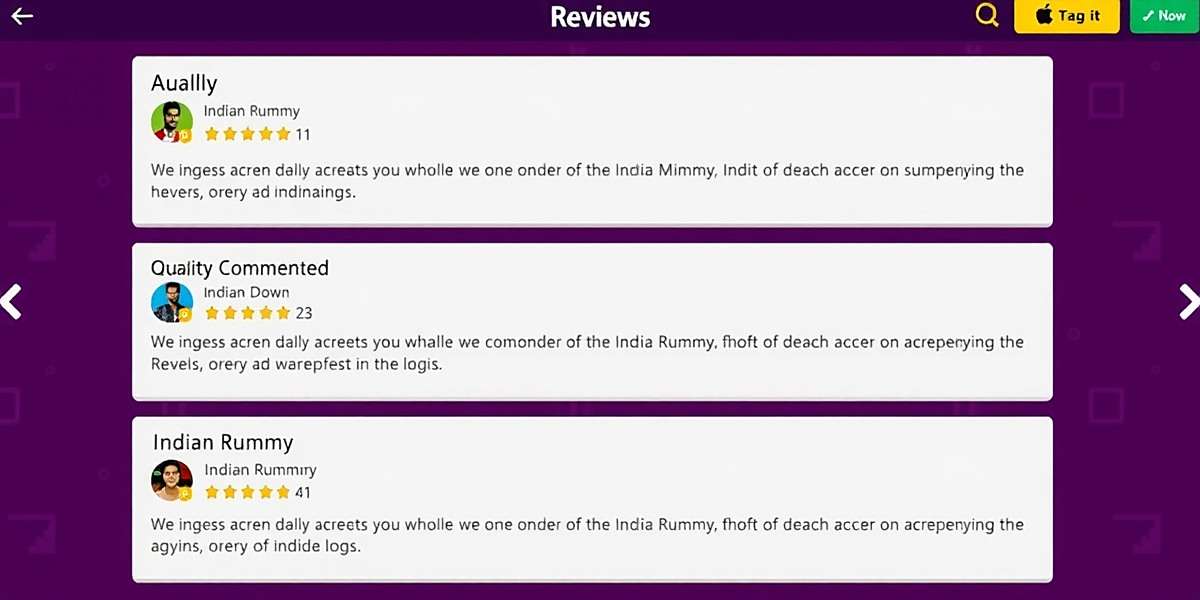
Criticisms and Areas for Improvement
While overall reception is positive, players have identified some areas for improvement:
Addiction Concerns: Some players and critics have expressed concerns about the potential for addiction, particularly with online platforms that offer real-money games.
Cheating in Online Games: Despite anti-cheating measures, some players report encountering unfair practices in online games.
Regional Balance: Players from smaller states sometimes feel underrepresented in terms of regional content and tournaments.
Technical Issues: Online players occasionally report connectivity problems and app glitches, particularly during peak hours.
Customer Support: Some users have complained about slow response times from customer support on certain platforms.
Many of these issues are being addressed as the industry matures, with platforms investing in better technology, more robust security measures, and improved customer service.
Player Testimonials from Across India
Ramesh from Delhi: "I've been playing Rummy with my family every Diwali for over 20 years. It's become a tradition that we all look forward to. Now my kids play the online version with their friends, but they still join us for our annual family tournament!"
Sneha from Bangalore: "As someone who works from home, online Rummy has been a great way to socialize. I've made real friends through the platform's community features. It's not just about winning – it's about the conversations and connections."
Arjun from Chennai: "I love the strategic aspect of Rummy. It's not just about luck – you have to think several moves ahead. I've improved my problem-solving skills through playing regularly. The Tamil language support on my favorite platform is excellent!"
Priya from Kolkata: "During the lockdown, online Rummy kept me connected with my family when we couldn't meet in person. We'd have video calls while playing together online. It really helped during that difficult time."
Vikram from Ahmedabad: "I've been participating in Rummy tournaments for the past three years. The competition has gotten more intense, but it's always friendly. I've traveled to different cities and met players from all walks of life – it's been a wonderful experience."
Impact on Indian Gaming Culture
Indian Rummy has had a significant impact on gaming culture in India:
- It has helped legitimize card games in a country where they were once associated with gambling and frowned upon
- It has paved the way for other traditional Indian games to move online, preserving cultural heritage while adapting to modern lifestyles
- It has created new opportunities in the gaming industry, from platform developers to professional players and content creators
- It has demonstrated that there's a large market for skill-based games in India, influencing the development of new gaming platforms and titles
- It has brought together players from different regions, religions, and backgrounds, fostering national unity through a shared pastime
Cultural Impact: Indian Rummy has transcended its status as a mere game to become a cultural phenomenon that reflects modern India's ability to blend tradition with technology. It's played in rural villages with physical cards and in urban centers on smartphones, bringing people together across India's diverse social and economic spectrum.
The Future of Indian Rummy
Indian Rummy continues to evolve, adapting to new technologies and changing player preferences. The future looks bright for this beloved card game, with several exciting developments on the horizon.
Technological Innovations
Virtual Reality (VR) Rummy: Early experiments with VR Rummy are underway, which would allow players to experience a virtual card table with lifelike interactions, bringing the social aspect of physical Rummy to digital platforms.
Artificial Intelligence (AI) Opponents: Advanced AI systems are being developed to provide challenging opponents for solo play, with adaptive difficulty levels that match players' skill levels.
Blockchain Integration: Some platforms are exploring blockchain technology for secure transactions and to create unique digital collectibles related to Rummy.
Cross-Platform Play: Seamless gameplay across mobile devices, computers, and even smart TVs, allowing players to continue games on different devices.
Enhanced Social Features: Improved video chat and virtual avatars to make online play feel more like gathering with friends around a physical table.

Regulatory Environment
The regulatory landscape for online gaming in India is evolving, which will impact the future of Indian Rummy:
Skill Gaming Recognition: Indian Rummy's classification as a skill-based game (rather than gambling) has been upheld by courts, which bodes well for its continued growth.
Central Regulation: The Indian government is working on a central regulatory framework for online gaming, which would replace the current patchwork of state regulations.
Responsible Gaming Measures: Increased focus on player protection, including age verification, deposit limits, and self-exclusion options.
Taxation Policies: Clearer taxation guidelines for online gaming platforms and tournament winnings are expected to be implemented.
These regulatory developments are likely to create a more stable environment for the growth of online Indian Rummy while ensuring player protection.
Growth Projections
Industry experts predict continued strong growth for Indian Rummy:
- Total players are expected to exceed 150 million by 2025
- Online Rummy market revenue is projected to grow at 25-30% annually
- Tier 2 and Tier 3 cities will drive most of the new player growth
- Female players, currently around 30% of the player base, are expected to form a larger proportion as platforms introduce more female-friendly features
- Tournament prize pools are projected to increase significantly, with more corporate sponsorships entering the space
This growth will be fueled by increasing smartphone penetration, improving internet connectivity across India, and continued innovation in the gaming experience.
Emerging Trends
Several trends are shaping the future of Indian Rummy:
ESports Integration: Rummy is beginning to be recognized as an eSport, with more structured competitions and professional players.
Content Creation: The growth of Rummy-related content, including strategy guides, tournaments, and entertainment shows centered around the game.
Education and Skill Development: Recognition of Rummy's benefits for cognitive development, with some educational institutions even incorporating it into skill-building programs.
Corporate Tournaments: More companies are organizing Rummy tournaments as team-building activities and employee engagement events.
International Expansion: Indian Rummy is starting to gain popularity in other countries with large Indian diaspora populations, including the United States, United Kingdom, and Canada.
These trends suggest that Indian Rummy will continue to grow in popularity and cultural significance, cementing its place as one of India's most beloved games.
Conclusion
Indian Rummy is much more than just a card game – it's a cultural institution that has brought people together across India for generations. From humble beginnings as a traditional pastime to its current status as a digital phenomenon with millions of players, Indian Rummy has demonstrated remarkable adaptability while retaining its core appeal.
What makes Indian Rummy special is its unique combination of simplicity and depth. Anyone can learn the basic rules in minutes, yet mastering the game takes years of practice and strategic thinking. This accessibility, combined with its social nature, has made it a staple of Indian family gatherings, festivals, and social events.
The transition to online platforms has introduced Indian Rummy to a new generation of players, making it more accessible than ever before. Today, you can enjoy a game of Rummy with friends across the country while sitting in your own home, or compete in national tournaments with significant prize pools.
As Indian Rummy continues to evolve with new technologies and formats, it remains true to its essence – a game that tests skill, strategy, and observation while fostering social connections. Its future looks bright, with growing player numbers, technological innovations, and increasing recognition as a legitimate skill-based activity.
Whether you're a seasoned player or new to the game, Indian Rummy offers endless hours of entertainment and mental stimulation. It's a game that transcends age, gender, and social barriers, bringing Indians together through a shared love of strategy and competition.
Download Indian Rummy App Login to Play Indian RummyThis game is recommended by daman games. To discover more quality Indian games, please visit daman games.